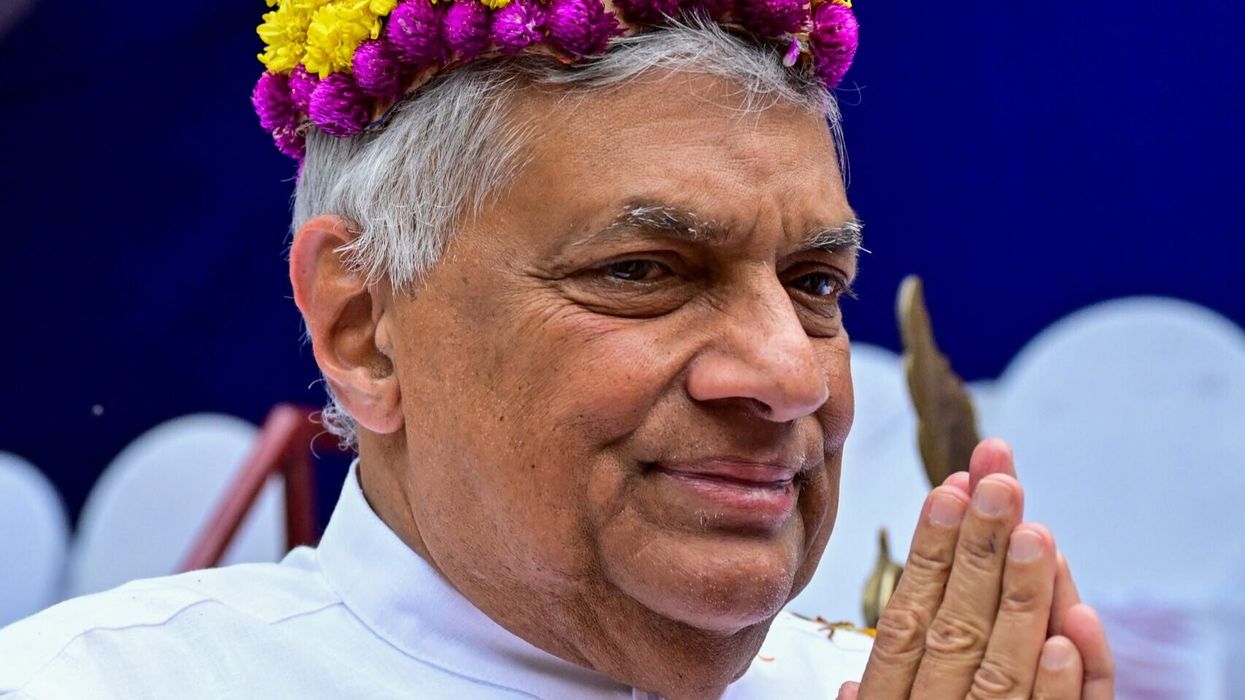RETIRED Sri Lankan accountant Milton Perera hoped to use his vote in upcoming presidential elections to vent his fury at political mismanagement as well as an economic crisis that slashed healthcare.
Instead, his widow Pushpalatha will cast her ballot in the September 21 polls in memory of her husband, mourning a man who died with chronic asthma unable to afford medicine. Like many disillusioned by the chaos of protest, and ground down by tough day-to-day living, Pushpalata says she will vote to show her anger at established politicians she blames for the mess.
Pushpalatha, 70, from the rundown and congested Slave Island district of the capital Colombo, said her 75-year-old husband died in December, just a few months after government welfare payments stopped.
“I had no money to buy his medicines,” Pushpalata said, while clutching a photo of her late husband, sitting in a damp home with crumbling walls.
It will be the first vote since an unprecedented economic crisis two years ago led to months-long food and fuel shortages, with protesters in July 2022 toppling president Gotabaya Rajapaksa.
Anura Kumara DissanayakaPresident Ranil Wickremesinghe, elected by parliament to lead the interim government, is seeking a mandate to continue tightening fiscal screws in line with a $2.9 billion (£2.21bn) IMF bailout loan to stabilise the economy.
While the economy shows “signs of stabilisation”, according to the World Bank, poverty rates rose for the fourth year in a row last year.
Around a quarter of its 22 million people lived below the poverty line in 2023, the bank said.
Poverty will remain above 22 per cent until 2026, it estimates.
Pushpalatha said her late husband – the same age as 75-year-old Wickremesinghe – had previously been provided free life-saving inhalers through a now scrapped government programme.
“We couldn’t afford it,” she said.
Nearly four million Sri Lankans were still facing “moderate food insecurity” in 2023, a year after the crisis peaked, according to a UN Food and Agriculture Organization report. The same report said more than a quarter of all households had employed “crisis-level strategies” by cutting health expenses, taking children out of school or selling off farming equipment to make ends meet.
The country has also haemorrhaged talent, with many families spending savings to send at least one relative abroad. Murtaza Jafferjee, head of Advocata, a Colombo-based independent policy think tank, said the cost of living was the key election issue.
“There is a significant number of voters who are trying to send a strong message to the established political parties, that they are very disappointed with the way this country has been governed,” Jafferjee said. But he expects that will be expressed in protest votes, not street marches.
“Anger on the street is not manifesting... because there is a realisation of many of these people that there is nothing that they can do,” he added.
Ousted former president Rajapaksa is not running in the polls. Instead, analysts said voters may shun the tough economic policies of Wickremesinghe – who has doubled taxes, cut subsidies and raised energy prices while president.
It could also deter voters from his key rival Sajith Premadasa, 57 – the largely ideologically aligned opposition leader – and push voters left.
That would benefit the National People’s Power (NPP) coalition, led by Anura Kumara Dissanayaka, 55, head of the Marxist People’s Liberation Front (JVP), Jafferjee suggested.
Dissanayaka came a distant third in the 2019 presidential polls, taking just three per cent, but considered far stronger this round.
While Dissanayaka has been in government – he was briefly agriculture minister - his party’s relative inexperience could woo voters frustrated at veteran politicians. Jafferjee, however, is sceptical about all the promises from the main contenders - including Dissanayaka – to raise salaries while reducing taxes, and follow IMF requirements.
Sri Lanka has not begun repaying external loans after a sovereign default in April 2022, when the foreign debt was at $46bn (£35.1bn). “The reality is that we had to go through some painful medicine to repair ourselves,” Jafferjee said. “So, we are on a very tight fiscal contractionary path”.
In Pushpalatha’s Slave Island district – the historic area where the Portuguese imprisoned slaves from East Africa – there is little optimism polls will bring change. “They usually come and promise a lot, but don’t deliver,” said Pushpalatha, describing the rallies by politicians to woo voters.
“I don’t have much hope. I can’t think of anyone who will help us.” (AFP)




